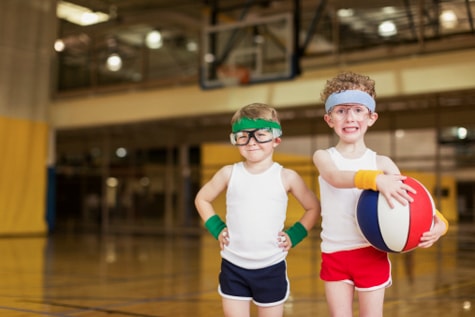Eye Safety for Children
Your child’s eye safety is of the utmost importance. Each year, thousands of children have eye accidents at home, at play, during sports, or in the car. Sports in particular, can be accident-prone with more than 33,000 people each year being treated for eye injuries related to sports activities according to Prevent Blindness America. These eye injuries can damage a child’s sight and even cause blindness. Parents are urged to acquaint themselves with potentially dangerous situations at home and in school and to insist that their children use appropriate protective eyewear when participating in sports or other activities. Just like a helmet can protect your child’s head, using protective eyewear can help prevent injuries that might cause eye pain in your child.
Eye Problems in Kids
As a parent, you might wonder “what would cause eye pain in a child”? What does it mean when a child’s eye hurts? Many different things, ranging from an injury, infection, disorders such as amblyopia, or vision problems like nearsightedness, farsightedness or astigmatism can cause what seems to be pain or cause complaints of an eye hurting. Common childhood eye disorders or symptoms of them should always be consulted with a doctor.
As a parent, noticing the signs of eye problems in children can be difficult, but rest assured that observing how your child behaves is very important for early detection of childhood eye problems and many childhood eye conditions can be cured with early detection. Look for behaviors indicating trouble seeing such as your child tilting their head or closing one eye. Childhood eye problems may also cause your child to avoid reading or fall behind in school. It is important to reach out to your primary care doctor, or a pediatric eye doctor if you have any concerns about your child’s vision or eye health.
Provide a safe environment & protect your child's eyes
 Eye Safety Tips for Kids:
Eye Safety Tips for Kids:
-
Select games and toys that are appropriate for your child’s age and responsibility level.
-
Provide adequate supervision and instruction when children are handling potentially dangerous items, such as pencils, scissors and utensils.
-
Be aware that even common household items such as paper clips, elastic cords, wire coat hangers, rubber bands, and fishhooks can cause serious eye injury.
-
Keep all chemicals and sprays out of reach of small children.
-
Do not allow children to ignite fireworks or stand near others who are doing so. All fireworks are potentially dangerous for family members of any age.
-
Do not allow children in the yard while a lawnmower is being operated. Stones and debris thrown from moving blades can cause severe eye injuries.
-
Demonstrate the use of protective eyewear to children by always wearing protective eyewear yourself while using power tools, rotary mowers, or lawn trimmers.
-
When participating in shop or some science labs, students should wear protective goggles that meet the American National Standards Institute (ANSI) Z87 safety code.
-
Consult an eye care specialist to get the best eye protection for sports and lifestyle hobbies. Eye guards should be lensed and either stay in place or pop outward.
-
Fogging of the protective lenses can be a problem when your child is active. Some eye guards are available with anti-fog coating. Others have side vents for additional ventilation. Make sure to keep this in mind when determining the best eye protection for your child.
-
Ensure any eye protection your child wears is padded or cushioned to protect skin, and always try them on to determine if they are the right size.
If your child incurs an eye injury of any kind, reach out to an emergency medical provider right away. Local medical providers can refer you to Wolfe Eye Clinic pediatric ophthalmologists who are available on an on-call basis 24-hours a day, seven days a week.
If you have questions about eye safety, or eye protection devices, we encourage you to ask your eye doctor at your next visit. Consulting eye professionals can provide the best protection for sports and lifestyle hobbies.